Filter by

A Dictionary of the Suahili Language With Introduction Containing an Outline…
Johan Ludwig Krapf (1810–81), a German-born member of the Church Missionary Society in East Africa, is regarded as the founder of Swahili studies in Europe. Having pursued an interest in Oriental culture from an early age, he first went to Abyssinia (Ethiopia) as a missionary. During his travels in Africa, he became the first European to see Mount Kenya; but he also considered the potential o…
- Edition
- -
- ISBN/ISSN
- 9781139207126
- Collation
- -
- Series Title
- Cambridge Library Collection - Linguistics
- Call Number
- -

The Political Carousel Elite Powersharing, Political Instability and the All…
"This research project examines how various political events and factors influence the composition of senior government elites in a range of African states. Using a newly created dataset of African cabinet ministers, this thesis creates a number of metrics to measure elite volatility and ethnic, regional and political representation. These metrics are used to assess leader and regime strategies…
- Edition
- -
- ISBN/ISSN
- -
- Collation
- -
- Series Title
- -
- Call Number
- -
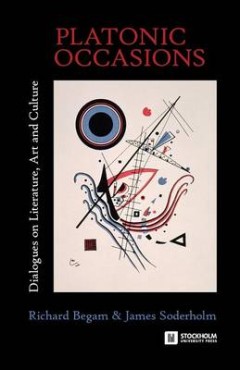
Platonic Occasions : Dialogues On Literature, Art and Culture
In Platonic Occasions, Richard Begam and James Soderholm reflect upon a wide range of thinkers, writers and ideas from Plato, Descartes and Nietzsche to Shakespeare, the Romantics and the Moderns—from Evil, Love and Death to Art, Memory and Mimesis. The dialogues suggest that Percy Shelley was right when he claimed “We are all Greeks,” and yet what have we learned about the initiatives of…
- Edition
- -
- ISBN/ISSN
- 9789176350003
- Collation
- -
- Series Title
- -
- Call Number
- 800 BEG p
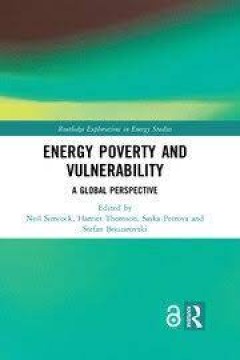
Energy Poverty and Vulnerability
We began this book with the aim of providing the first global and comparative perspective on energy vulnerability, in order to advance debates on the systemic processes and conditions that (re)produce domestic energy deprivation. By bringing together 13 chapters that cover 14 countries in total, the volume provides the first instance where such divergent contexts are brought together to discuss…
- Edition
- -
- ISBN/ISSN
- 9781138294455
- Collation
- -
- Series Title
- -
- Call Number
- -
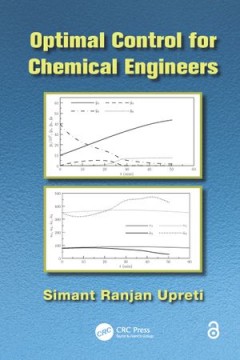
Platonic Occasions: Dialogues On Literature, Art and Culture
In Platonic Occasions, Richard Begam and James Soderholm reflect upon a wide range of thinkers, writers and ideas from Plato, Descartes and Nietzsche to Shakespeare, the Romantics and the Moderns—from Evil, Love and Death to Art, Memory and Mimesis. The dialogues suggest that Percy Shelley was right when he claimed “We are all Greeks,” and yet what have we learned about the initiatives of…
- Edition
- -
- ISBN/ISSN
- 9789176350003
- Collation
- -
- Series Title
- -
- Call Number
- -
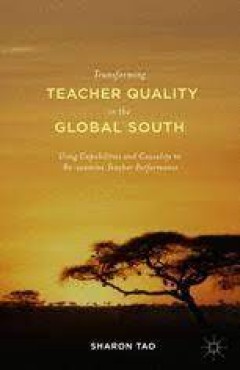
Transforming Teacher Quality in the Global South
A common story of teachers from the Global South portrays them as deficient, unreliable and unprofessional. However, this book uses an innovative Capability Approach/Critical Realist lens to reveal the causal links between teachers' constrained capabilities and their 'criticised' behaviours and offer nuanced, creative strategies for improvements.
- Edition
- 1
- ISBN/ISSN
- 978-1-137-49544-0
- Collation
- X, 233
- Series Title
- -
- Call Number
- -
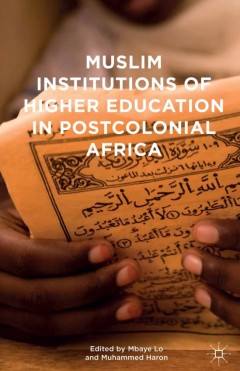
Muslim Institutions of Higher Education in Postcolonial Africa
Muslim Institutions of Higher Education in Postcolonial Africa examines the colonial discriminatory practices against Muslim education through control and dismissal and discusses the education reform movement of the post-colonial experience.
- Edition
- 1
- ISBN/ISSN
- 978-1-137-55230-3
- Collation
- IX, 302
- Series Title
- -
- Call Number
- -
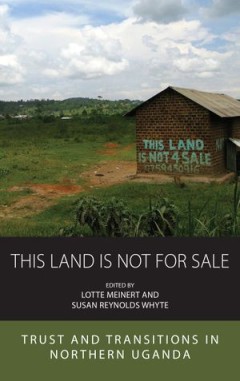
This Land Is Not For Sale : Trust and Transitions in Northern Uganda
Although violent conflict has declined in northern Uganda, tensions and mistrust concerning land have increased. Residents try to deal with acquisitions by investors and exclusions from forests and wildlife reserves. Land wrangles among neighbours and relatives are widespread. The growing commodification of land challenges ideals of entrustment for future generations. Using extended case studie…
- Edition
- -
- ISBN/ISSN
- 9781805390473
- Collation
- -
- Series Title
- -
- Call Number
- -

Asian Literary Voices
Brings together some of the most exciting recent scholarship on Asian literature and culture, emphasising East Asia yet extending to South Asia Combines original findings of interest to specialists with a clear style of writing and argumentation that makes the volume accessible and appealing to the general reader Brings to life a wide range of Asian literary and scholarly figures important in t…
- Edition
- -
- ISBN/ISSN
- 9789089640925
- Collation
- -
- Series Title
- -
- Call Number
- -
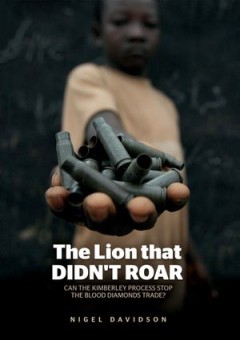
The lion that didn’t roar : can the Kimberley Process stop the blood diamon…
n 2017 it will be Australia’s turn to chair the Kimberley Process Certification Scheme (KP), an international organisation set up to regulate the trade in diamonds. Diamonds are a symbol of love, purchased to celebrate marriage, and it is therefore deeply ironic that the diamond trade has become linked with warfare and human rights violations committed in African producer countries such as Si…
- Edition
- -
- ISBN/ISSN
- 9781760460266
- Collation
- -
- Series Title
- -
- Call Number
- 338.887 223 82 DAV l
 Computer Science, Information & General Works
Computer Science, Information & General Works  Philosophy & Psychology
Philosophy & Psychology  Religion
Religion  Social Sciences
Social Sciences  Language
Language  Pure Science
Pure Science  Applied Sciences
Applied Sciences  Art & Recreation
Art & Recreation  Literature
Literature  History & Geography
History & Geography